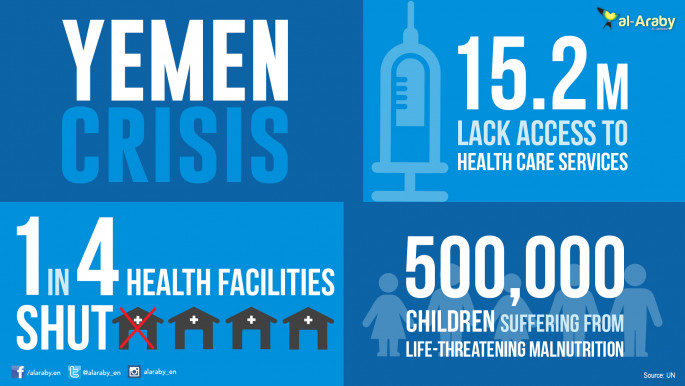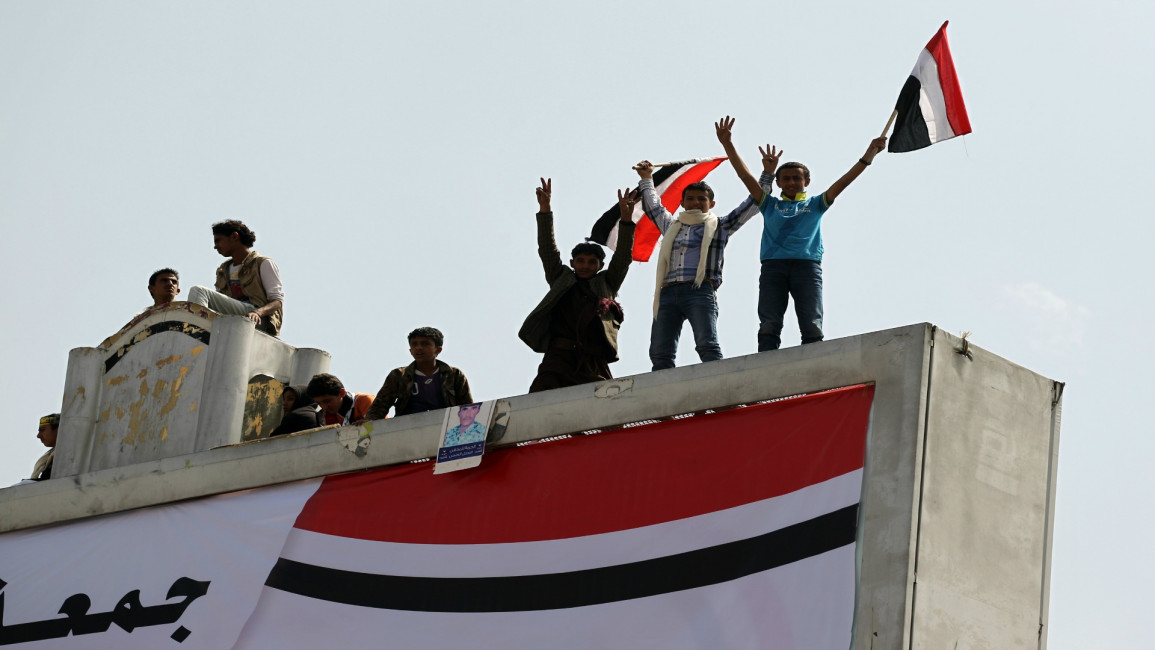
A silver lining in Yemen's tragedy
Yemenis have an amazing talent: no matter how miserable the situation is, we adjust and we cope.
In a way, it is a sign of our society's resilience and desire for life. But at many times, this ability to cope and get by only makes the situation worse.
I have questioned this notion of acceptance so many times since my teenage years. Why is it OK to live under difficult conditions? Why should it be "fine" to tolerate lifestyles that degrade us and take away our rights as human beings?
It's not that we don't have a sense of pride; we are very proud people and anyone who knows Yemenis or has been to Yemen would quickly agree. Our pride is so intrinsic to our society that it levels the playing field across economic and social classes.
I think it comes down to a lack of self-worth. It's not knowing or believing that we deserve to live in better conditions, and that those in power should be held accountable. This ignorance has been deliberately created and maintained by decision makers for the past fifty years or so, and has led Yemenis to accept a very low standard of life.
There is also a missing sense of ownership of the public realm. There seems to be a general understanding that it is OK to damage public property, that what matters is the level of cleanliness inside the house, even if this means there is garbage piling up right outside your door. There is also a lack of empathy. The sense of community is so narrowly defined that it is limited to a family branch or a tribe. Never in Yemen's history had there been a strong state that created a sense of national identity for the entire country.
With these two social problems - a lack of self-worth and the absence of national identity - it has been always easy for autocratic rulers to run the country, serving their own interests, without fearing consequences. They knew that no matter how difficult the situation becomes, Yemenis will adjust and they will cope and they will move on.
 |
The misery is gradually brewing feelings of anger and rage, forcing us to start questioning, and more, to start demanding a better life |  |
But today, the majority of the population is in need of elementary humanitarian assistance, and there no single family that has not been affected by the armed conflict - both "horizontally" through the civil war, and "vertically" through the airstrikes and anti-aircraft units.
No one has managed to escape the destruction this war has wrought upon Yemen, even those who managed to flee have lost their homes, property or loved ones.
We have reached a point where Yemenis can cope no longer. Life has reached rock bottom here. The misery is gradually brewing feelings of anger and rage, forcing us to start questioning and more, to start demanding a better life.
The resentment is gradually increasing every day. It is very sad that it took the death of thousands of innocent Yemenis and the destruction of the country's entire infrastructure and much of its heritage to get to this point.
But at least we are getting there.
 |
Already, signs of this awakening are appearing across the country |  |
Momentum remains weak, and as there are no institutional organisational structures and a weak civil society, a solid and sustainable reaction will take time to brew up.
Those ones causing and benefiting from the armed conflict know this, and are therefore furiously craking down on agents of change, such as civil society leaders, journalists, activists and community mobilisers - because they know that these people can accelerate a society's awakening.
It's not a revolution or an uprising like the so-called Arab Spring. It will start on the very local level, with small communities organising themselves to replace the state - clustering economies to fill the void created by a falling macro-economy.
We will revert to our tribal and traditional norms for governance and the methods we know best as an ancient civilisation, a civilisation which is resilient and refuses to die.
Already, signs of this awakening are appearing across the country, regardless of who is in control of local areas. The war has torn us apart, and shredded the remains of our already tattered social fabric.
Now we have a chance to rebuild our nation one brick at a time. This, unfortunately, is going to be a painfully slow process that will likely take a decade or two.
During this time, so much will be lost - because the conflict will continue one way or another - but my people will survive, and they will come out of this crisis stronger.
Nadia al-Sakkaf is a PhD researcher in politics at the University of Reading.
She is an expert on Yemeni affairs, gender and media issues in the Middle East. She was the first woman to become Information Minister in Yemen and before that was deputy chair of the National Dialogue Conference's monitoring body. Nadia was Chief Editor of the Yemen Times, Yemen's first English language newspaper, for eleven years. She won several international awards such as the Gebran Tueni Award in 2006 and the Business for Peace Award 2013.
Follow her on Twitter: @NadiaSakkaf
Opinions expressed in this article do not necessarily reflect those of The New Arab, its editorial board or staff.
 |




